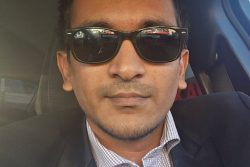Martinique offered more autonomy
French president, Nicolas Sarkozy, has offered the island of Martinique a referendum on autonomy.
Speaking in the capital, Fort de France, Sarkozy said the people of Martinique were free to choose in their heart and conscience, as he put it, which road they wished to take.
However he said the debate was not about independence, but about setting the right level of autonomy.
“So long as I am president of the Republic, there will be no question of independence for Martinique, of its separation from France,” Sarkozy added.
He arrived in Martinique on Thursday and heads later Friday to Guadeloupe as part of his government’s efforts to revamp ties with the territories after a general strike over rising prices degenerated into weeks of rioting.
Antigua’s immigration
policy under fire
Antigua’s opposition Labour Party (ALP) has called on the Baldwin Spencer administration to discontinue what ALP leader Lester Bird has called the government’s policy of expulsion of immigrants.
In a letter to Minister for National Security Errol Cort, Bird said the policy was spreading fear “among our Caribbean brethren”. According to the former prime minister the government has from March this year been applying the country’s immigration laws arbitrarily against immigrants from Caribbean Community (Caricom) states.
“The laws have been applied harshly against Jamaican and Guyanese citizens,” Bird said, adding that those residing in the six constituencies of the capital St John’s were being targeted more than others. Prime Minister Baldwin Spencer has denied that his government is targeting foreign nationals living in the country.
Not enough telephones
Cuba is lagging behind other countries in the hemisphere when it comes to telephones, computers and the Internet.
A government report shows that there were 1.4 million telephones, fixed and mobile, in the country of 11.2 million inhabitants.According to the United Nations International Telecommunications Union, this gave a total density of 12.6 telephones per 100 inhabitants, the lowest in the Americas.
Computers were also scarce at just 630,000, and the report says 13 % of Cuba’s population had Internet access.
Most of the computers were believed to be in government offices, health facilities and schools.
Make integration more inclusive
Regional integrationist Sir Shridath Ramphal is urging Trinidad and Tobago and the Organisation of Eastern Caribbean States (OECS) to ensure that other Caribbean Community (Caricom) states too can join the proposed TT/OECS economic and political union.
Sir Shridath has offered qualified support to that proposed integration effort.
He says if it can help other countries quicken their own pace of integration the union will be positive.





